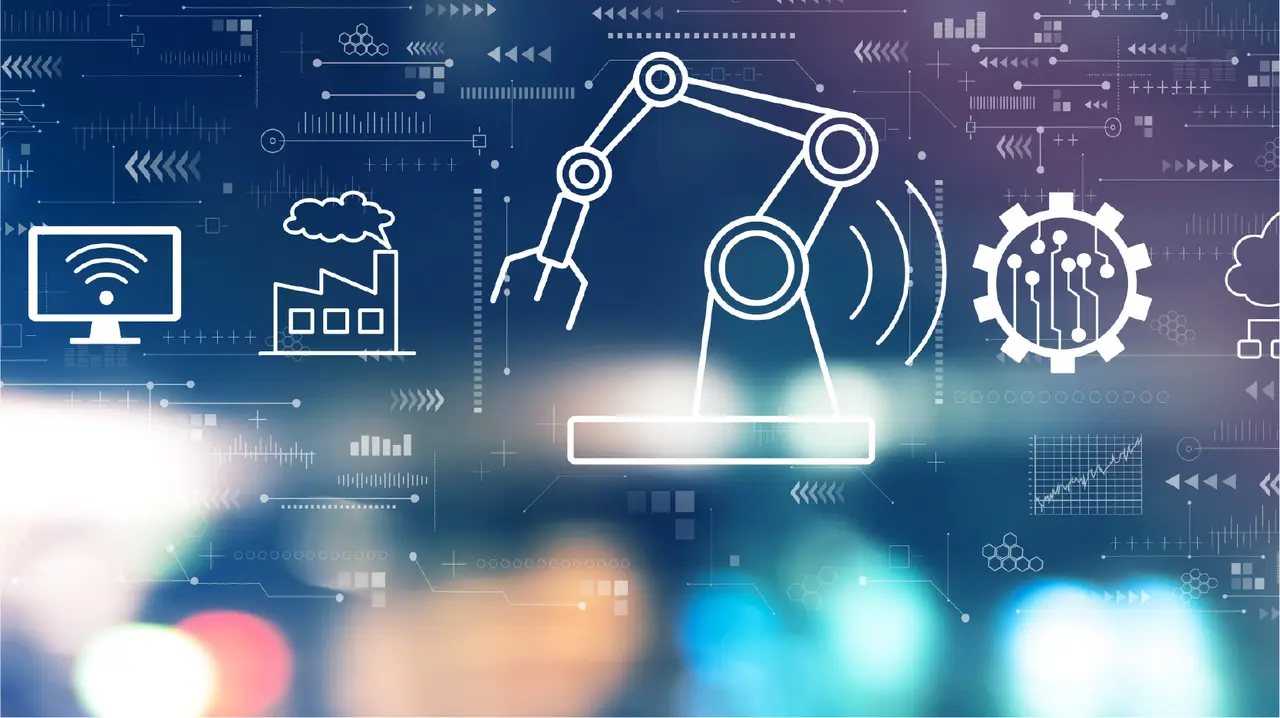With the continuous development of information technology, IoT technology has been widely applied across various fields. In manufacturing, the application of IoT not only enhances production efficiency and reduces costs but also achieves smarter and more automated production processes, particularly in the machinery manufacturing sector.
Machinery manufacturing is a key field in the manufacturing industry, and the application of IoT technology has brought numerous innovations and development opportunities. The widespread use of industrial IoT in machinery manufacturing injects new vitality into construction machinery manufacturing, marking a major transformation in the traditional machinery manufacturing industry and significantly improving its production capacity and efficiency.
New Applications of Industrial IoT in the Construction Machinery Industry
1. Digital R&D and Design
With increasing market competition in the construction machinery industry, manufacturers are accelerating the pace of product innovation, striving to create differentiated functionalities and services for their brands. IoT replaces the traditional, inefficient methods of gathering information for product R&D, such as door-to-door surveys or mass distribution of flyers. Using industrial IoT, manufacturers can conduct long-term and comprehensive monitoring and testing of prototype products. Real-time experimental data is collected and transmitted back to a central database. Big data analysis provides precise references for R&D, enabling data-driven innovation and creating new value in product development.
2. Intelligent Products
IoT aids in enhancing the intelligence of equipment, improving operational precision at construction sites, increasing operator safety, and optimizing the collaborative efficiency of equipment fleets. The essence of construction machinery lies in assisting humans in performing convenient, safe, and intelligent construction tasks profitably. IoT enables equipment to gain capabilities such as autonomous mobility, anomaly detection, precision operations, collaborative work, self-diagnosis of faults, and recovery. The smarter the product, the more economical and competitive it becomes.
Single-machine intelligence is reflected in simplified and remote-controlled operations. In the event of a fault, the equipment can recover autonomously or leverage remote upgrades to resolve issues.
Fleet intelligence emphasizes the interaction, data sharing, and collaborative operation among different equipment types. This leads to improved operational efficiency, reduced workload, and minimized risks. For example, AGV transfer cart vehicles paired with lifting mechanisms can achieve unmanned intelligent warehousing.
Trends of Industrial IoT in the Construction Machinery Industry
1. Localized Equipment Connectivity
Leveraging IoT technologies such as BLE, ZigBee, WiFi, NB-IoT, and 5G enhances fast, agile local perception, human-machine interaction, localized communication, and localized big data analysis. This lays the foundation for data sharing and collaborative construction among different types of equipment.
2. Product Intelligence
IoT reinforces fault self-diagnosis, remote fault support, and recovery capabilities. It also enhances precision, efficiency, and automation on construction sites, enabling high-quality and high-efficiency operations.
3. Collaborative Operations
By utilizing IoT technologies like WSN, differential base stations, video surveillance, WiFi, and NB-IoT, precise collaborative operations between different equipment types can be achieved. This approach maximizes energy efficiency, reduces costs, and ensures optimal productivity.
Applications of IoT Technology in Machinery Manufacturing
1. Intelligent Manufacturing
As technology advances, IoT is being widely applied in machinery manufacturing, playing an increasingly critical role. IoT-based intelligent manufacturing helps companies achieve digitalization, networking, and automation goals.
- (1) Intelligent Production Processes
IoT enables communication and data sharing between machines, achieving intelligent production processes. For instance, IoT can monitor and manage equipment intelligently, enabling remote control, predictive maintenance, and fault warnings, which improve production efficiency and reduce costs. IoT also facilitates real-time monitoring and management of production processes, enhancing product quality and operational efficiency. - (2) Transparent Supply Chain
IoT enables supply chain transparency by collecting and analyzing data on logistics, warehousing, procurement, and production. This facilitates visualized management and intelligent optimization of the supply chain. For instance, real-time monitoring and management of raw materials ensure quality and quantity compliance. Additionally, IoT helps in supplier collaboration and evaluation, improving supply chain efficiency and stability. - (3) Intelligent Product Quality Management
IoT supports intelligent product quality management. By collecting and analyzing product data, the entire product lifecycle can be monitored and managed. This ensures product quality and facilitates traceability, enabling rapid problem identification and resolution. - (4) Customized Client Solutions
IoT enables companies to meet customers’ personalized demands. By analyzing customer data, companies can identify requirements quickly and customize production accordingly. For example, using IoT, Henan KuangshanCrane developed an automated steel plate handling overhead crane for Sany Heavy Industry based on their traditional electromagnetic overhead cranes. This custom solution is safer, more efficient, and automated, offering features like high positioning accuracy, fast operation, and zero maintenance. - (5) Remote Monitoring and Maintenance
IoT facilitates remote monitoring and maintenance of machinery by collecting and analyzing production data. This enables real-time monitoring, control, and fault diagnostics, which improve production efficiency and reduce operational costs.
2. Applications in Machine Manufacturing
IoT connects sensors and smart devices, allowing real-time monitoring and control of each stage in the machine manufacturing process. For example, IoT sensors can monitor parameters such as temperature, humidity, and pressure in machines, ensuring the equipment’s optimal condition. Predictive analytics powered by IoT also helps identify potential faults, reducing downtime and maintenance costs while enhancing production efficiency.
3. Applications in Machine Maintenance
IoT enables real-time fault information and operational status uploads to cloud platforms for remote monitoring and maintenance. Using remote maintenance systems, companies can diagnose and troubleshoot machines via video surveillance or remote control, reducing labor costs. Analyzing maintenance data further optimizes plans and methods, improving efficiency and quality.
Conclusion
The application of IoT in construction machinery manufacturing has become a trend and development direction. IoT technology enables interconnectivity between devices, automated monitoring and diagnostics, and intelligent management of machine manufacturing processes. This improves efficiency, product quality, and cost-effectiveness while meeting client demands for quality and safety. In the future, IoT will become increasingly prevalent and integral, serving as one of the core technologies in machinery manufacturing.












Leave a Reply